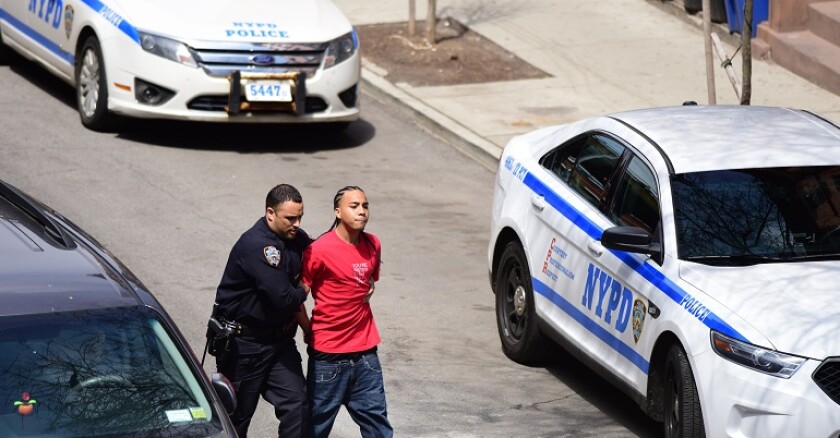Most of the people arrested for offenses like shoplifting, trespassing and disorderly conduct will not be sentenced to serve time behind bars. But that doesn't mean that there are no consequences for these crimes. Indeed, the consequences are often disproportionately harsh. Many misdemeanants are detained while awaiting the final disposition of their cases. Many are fined and must pay court fees that represent a difficult financial burden. And many leave court with criminal records that can limit their access to education, housing and employment. In short, the outcomes in misdemeanor cases are often profoundly unjust when considering the minor nature of the misbehavior involved.
If the outcomes are bad, the process might be even worse. In many places, misdemeanor justice means over-enforcement in low-income neighborhoods, a presumption of guilt and rapid-fire case processing that emphasizes speed over the rights of the accused. Law professor Malcolm Feeley got it right with the title of his classic critique of our criminal courts: "The Process Is the Punishment."
Balanced against all of this is another truth: In many communities, including those of color, residents are demanding enforcement of low-level offenses. No one wants to live in a neighborhood overrun by crime and disorder. And, as a recent meta-analysis by the National Academies of Sciences, Engineering and Medicine confirms, proactive policing efforts do help deter local crime.
How do we square this circle? How do we respect the need to address minor crime at the neighborhood level while at the same time reducing the harms that the justice system inflicts, particularly on disadvantaged communities?
Ironically, the answer to this dilemma is beginning to take shape in New York City, the original home of "broken-windows" policing. The first step was in fact taken by the police department. While the NYPD has not disavowed the broken-windows approach and its focus on an orderly urban environment, since 2010 the department has reduced the number of misdemeanor arrests by 36 percent The City Council has advanced the ball still further, effectively re-routing a number of low-level violations (such as public urination and unreasonable noise) from criminal to civil court.
Another important piece in the puzzle is pre-court diversion. In New York, police and prosecutors, with the help of the Center for Court Innovation and other nonprofits, are now offering individuals arrested for selected misdemeanors, including shoplifting and trespassing, a chance to avoid going to court altogether. Participants who successfully complete a restorative-justice circle or a class with a local artist focusing on positive self-expression leave the process without a criminal record. A recent evaluation of the program, known as Project Reset, found that cases were resolved 72 percent faster and participants had fewer new arrests compared to those who experienced conventional prosecution.
All of these initiatives mean that there are fewer cases coming to court and fewer misdemeanants landing in the city's notorious Rikers Island jail complex. But while the numbers have declined precipitously, on any given day there are still roughly 400 people who have been sentenced to jail for a misdemeanor offense. These tend to be challenging cases involving individuals with lengthy rap sheets and long histories of trauma, substance abuse and mental health issues. Our goal should be to provide this population with creative alternatives to jail that address their multi-faceted needs and link them to the kinds of long-term care they need to avoid cycling through the system again and again, serving a life sentence 30 days at a time.
In sum, New York City offers the outlines of a model that takes seriously the kinds of misbehavior that undermines community quality of life, shrinks the footprint of the justice system and judiciously uses the power of the state to help people improve their lives. Police should be encouraged to use their discretion to issue warnings and not routinely make arrests when they encounter people engaged in minor rule-breaking. Prosecutors and judges should be provided with alternatives to prosecution and incarceration so that short-term jail sentences can effectively be eliminated. And everyone in the system should be given the training and resources they need to work in a way that is free of bias and that honors the fundamental dignity and humanity of those they encounter.
Misdemeanors matter. They may often be minor cases in a legal sense, but the way we deal with them has a major impact on the lives of millions of people each year. Rethinking misdemeanor justice is fundamental to the long-term health of our justice system.









